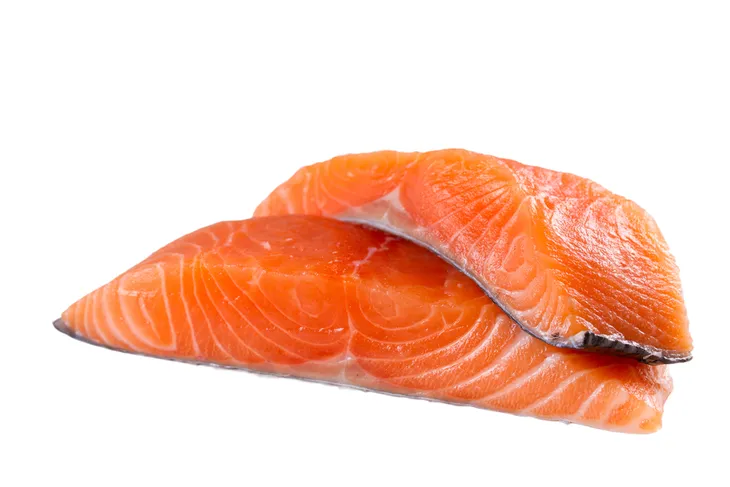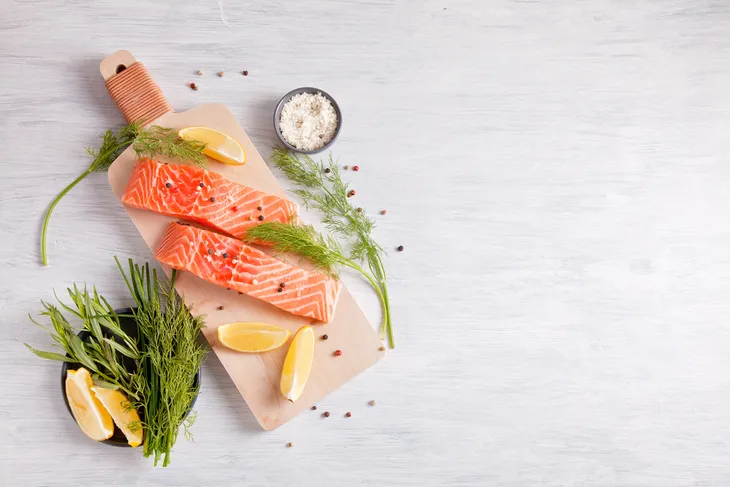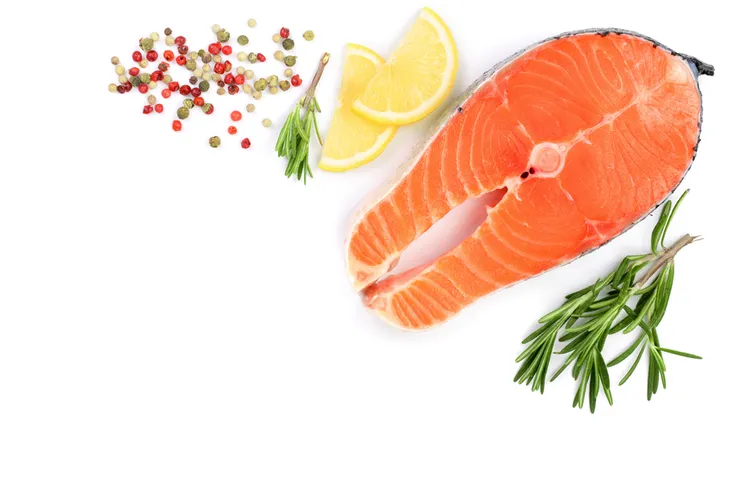There are many health benefits to incorporating wild salmon into your diet. Wild salmon dine on other fish (unlike farm-raised salmon, which can be fed fillers or injected with antibiotics for mass production), which means they are high in essential omega-3 fatty acids (or good fats), protein, and low in saturated fats (bad fats).
Here are eight reasons to say “yes” to wild salmon on your plate…
Supports Healthy Vision
Research from the University of Maryland Medical Center found that diets rich in omega-3 essential fatty acids (prominent in salmon) can lower the risk onset of age-related macular degeneration (or AMD)—the leading cause of vision loss in individuals past age 50. Omega-3s were also credited for decreasing irritated or dry eyes and other vision-related issues. (Here are some more Foods That May Improve Eyesight).
Improves Skin
If you struggle with acne, redness, or wrinkly, sagging skin eating wild salmon may be better than any expensive moisturizer. Dermatologists at Yale, link a diet rich in omega-3 fatty acids to better moisturized, less problem prone, younger looking skin.
Why? Because essential fatty acids replenish aging skin with lipids, naturally-occurring molecules that maintain skin elasticity and flexibility. And protein-rich sources, like salmon, encourage skin-benefitting collagen production.
Stabilizes Blood Pressure
If your blood pressure is high, you might consider eating salmon weekly to lower your blood pressure and prevent dangerous spikes. Research from St. George’s Medical School, in London, found that potassium citrate, like potassium chloride (a supplement often recommended for high blood pressure), works just as well to prevent high blood pressure (hypertension).
However, potassium citrate is found naturally in foods (such as wild salmon).
Strengthens Memory
If you want beauty and brains you’d better eat your wild salmon, according to a study published in The Journal of Nutrition, which linked salmon (or omega-3 fatty acids) to improved memory and cognitive processes. The study monitored rats with high fish oil diets versus rats with low fish oil diets and found that more fish oils equaled better memory performance and mental alertness.
Helps Maintain Healthy Weight
If you’re struggling with your weight, incorporating a healthy source of fats, like those found in wild salmon, will ward off hunger cravings and keep you satisfied longer after consumption due to the slow way in which salmon is digested. Wild salmon is also a great source of protein, selenium, niacin, vitamin B12 and B6, phosphorus, and magnesium for overall balanced nutrition.
Lowers Cholesterol
If your cholesterol is soaring into dangerous territories, take it from U.S. National Institutes of Health research that links salmon consumption (a few times per week) to lower triglycerides (or bad cholesterol) and reducing the overall risk of cardiovascular disease. (Here are some more Foods For Lowering Cholesterol).
Versatile, Healthy, and Tasty
For purely appetizing (yet healthful) reasons, wild salmon can be incorporated into a variety of meals in multiple ways. For instance, I put smoked or shredded wild salmon into omelets, on sandwiches, on top of fresh salads, into pasta and stir fry dishes, into patties for salmon burgers—the possibilities of this healthy source of fat and protein are both tasty and endless!
Lowers Cancer Risk
You’ve long heard health claims that omega-3 fats reduce the risk of certain types of cancer (i.e., prostate and rectal cancer). Food sources high in omega-3 fatty acids, such as wild salmon and other cold water fish were found to decrease the risk of cancer, according to research from Stanford Medicine.











